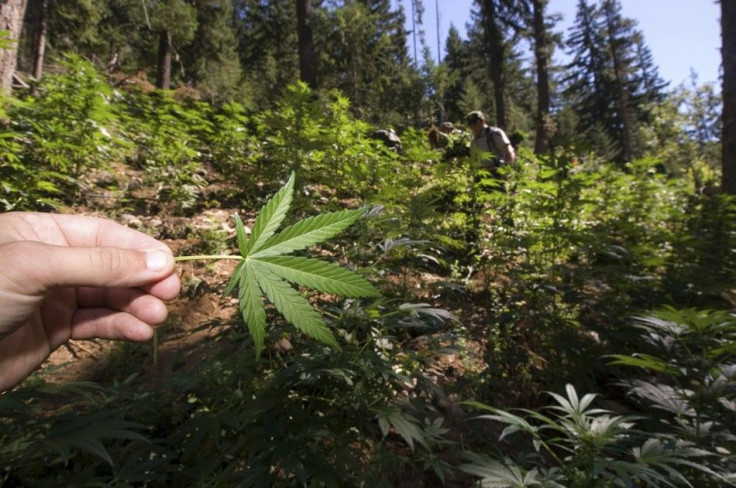Legalization of Marijuana Leads to an Increase in its Use Among Teenagers: Marijuana Bad for Teenager's Brains
Abnormalities in the Brain's Grey Matter is Seen Among Teens Who Have Increased their Marijuana Use Since One Year

Psychologists held a discussion about the public health implications of the legalisation of marijuana at the American Psychological Association's 122 Annual Convention. In the discussion, they threw light on the dangers marijuana poses to young adults, it tampers with their cognitive development, resulting in poor memory and decreased IQ.
Krista Lisdahl, PhD, director of the brain imaging and neuropsychology lab at University of Wisconsin-Milwaukee, said that a regular use of cannabis can lead to addiction and neurocognitive damage. According to Lisdahl, "regular use" is once a week.
She threw light on a 2012 study that showed an increase in the use of marijuana. The study found that 6.5 per cent of school goers smoke marijuana and 31 per cent of adults also use the drug. Brain imaging studies have shown that the brain structures of marijuana users had changed, especially among young adolescents who are still maturing. They even spotted abnormalities in the brain's grey matter of teens between 16 and 19 who have increased their marijuana use since one year, she said.
"When considering legalization, policymakers need to address ways to prevent easy access to marijuana and provide additional treatment funding for adolescent and young adult users," she said. She also stated that the legislators must make sure that the levels of tetrahydrocannabinol, or THC are regulated as it reduce potential neurocognitive effects.
Alan Budney, PhD, of Dartmouth College stated that even legalised forms of marijuana have high THC levels. This can cause bouts of depression and anxiety. Budney said that these effects could be controlled by regulating the frequency of the intake and the potency of the substance. "Unfortunately, much of what we know from earlier research is based on smoking marijuana with much lower doses of THC than are commonly used today. He also suggested a deeper research into the treatment for the addiction "to develop more effective strategies and interventions."
Bettina Friese, PhD, Institute for Research and Evaluation in California stated that this sudden rise in the use of cannabis is due to medical legalisation, and this has had an effect on how they view the drug. A 2013 study of 17,482 teenagers in Montana also revealed that in those countries that pushed for a legalisation of marijuana, teenagers used the plant at a higher rate, and they thought it to be less dangerous as well. Friese said that the results of the research reveal that a perception of it being less risky leads to greater use among teenagers than the actual number of medical marijuana licenses available.






